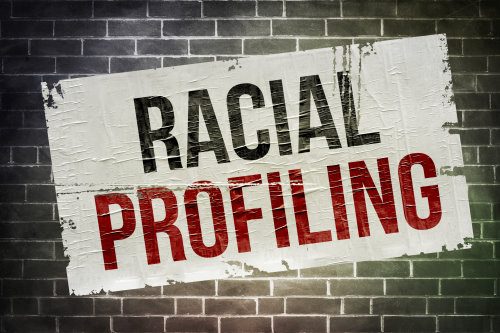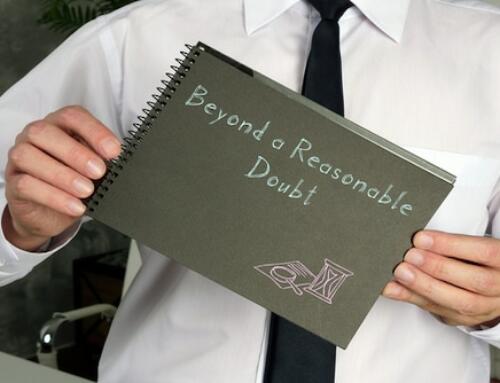Unfortunately, racism is very much still a real problem in Philadelphia and other parts of Pennsylvania. There have been several high-profile cases of racial profiling by the police in recent years, and the problem has grown so big that the Pennsylvania State Police were forced to adopt a policy against racial profiling in 2019. While this policy is specific to the targeting of foreign nationals (based on an investigation which revealed that Pennsylvania police, “sent so many Hispanic immigrants to ICE that the agency’s Pennsylvania field office had more ‘at large’ arrests,” than any other office nationwide), there is no question that the targeting of African Americans and individuals in other groups remains a major issue as well.
If you were arrested and believe that you are a victim of racial profiling, what are your legal rights? In short, stopping a person based on racial profiling is a violation of the Fourth Amendment to the U.S. Constitution. If the police violated your constitutional rights, then your stop was illegal, and any evidence obtained during or after your stop is inadmissible in court.
The Fourth Amendment Prohibits Racial Profiling in Law Enforcement
The Fourth Amendment prohibits “unreasonable searches and seizures.” Since the Fourth Amendment’s ratification in 1791, the U.S. Supreme Court has interpreted what it means for a search or seizure to be “unreasonable.” The basic test is whether the search or seizure is based on “reasonable suspicion,” and this requires that:
“[T]o determine whether the police officer acted reasonably in the stop, a court should not look at whether he has a hunch, but rather ‘to the specific reasonable inferences which he is entitled to draw from the facts in light of his experience.’”
How does this relate to racial profiling? The U.S. Supreme Court has held that a person’s race is not a factor that allows for a “specific reasonable inference” that an individual has committed a crime. In other words, stopping a person based on his or her race—the very definition of racial profiling—is specifically what the Fourth Amendment is intended to protect against.
Does this mean that the police can never consider a person’s race when conducting law enforcement activities? No. While the police cannot stop a person based solely on his or her race, the police can consider a person’s race if they are looking for a suspect that matches a specific description. As explained by the Congressional Research Service:
“Courts have held that an officer cannot meet the Fourth Amendment standard by relying on a persons racial appearance, alone, as grounds for reasonable suspicion. By contrast, the officer may use race, for example, searching for a person matching a suspect’s description and part of that description is the suspects race.”
This, as you can imagine, can lead to some grey areas in which officers dispute allegations of racial profiling by claiming to have had a specific law enforcement purpose in stopping a person of color. When an officer disputes a defendant’s allegations of racial profiling, it is necessary for the defendant to raise sufficient concern to overcome the officer’s bare denials. It then becomes incumbent upon the prosecution to prove both (i) that the defendant’s stop was lawful, and (ii) that the evidence gathered subsequent to the defendant’s stop is sufficient to prove his or her guilt beyond a reasonable doubt.
What Should You Do if You Believe You Were Racially Profiled in Pennsylvania?
If you believe that you are a victim of racial profiling in Pennsylvania, what should you do? At this point, it will be important for you to discuss your case with a criminal defense attorney as soon as possible.
In order to assert your rights under the Fourth Amendment, you not only need to raise the issue of racial profiling effectively (and in accordance with all applicable court rules and procedures), but you must also be able to do more than simply accuse the arresting officer of profiling you. If you hire an experienced criminal defense attorney, your attorney should be able to determine whether you have grounds to assert racial profiling as a defense; and, if you do, he or she should be able to take the legal steps necessary in order to raise the issue in court.
If you are a victim of racial profiling – and if your attorney successfully raises the issue in court – this does not mean that your charges will automatically be dismissed. Rather, it means that you will have the opportunity to argue that the Commonwealth’s evidence against you is legally inadmissible. If you can establish that you were stopped because of your race and that the Commonwealth’s evidence should be deemed inadmissible as a result, then this might be enough to support a motion to dismiss.
In criminal cases in Pennsylvania, the prosecution has the burden of proving the defendant’s guilt beyond a reasonable doubt. This requires evidence that is admissible in court. If the prosecution does not have enough admissible evidence to prove your guilt, then this means that you cannot be (or should not be) convicted in court.
However, depending on the circumstances involved in your case, it is possible that the prosecution could have evidence that is admissible because it was not obtained “incident to” your stop or arrest. As a result, the fact that you were racially profiled does not necessarily mean that the prosecutor’s office will be unable to prove its case against you. These are challenging issues that involve challenging circumstances, and you will need an experienced criminal defense attorney who can fight to protect you by all means available.
Schedule a Free Consultation with Philadelphia Criminal Defense Attorney Brian Fishman
Brian Fishman is a Philadelphia criminal defense attorney and former prosecutor who has well over a decade of experience in Pennsylvania’s criminal justice system. If you believe that you may be a victim of racial profiling, we encourage you to contact us right away. To discuss your case with Brian in confidence, call 267-758-2228 or request a free consultation online now.






